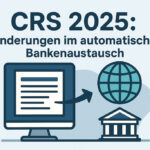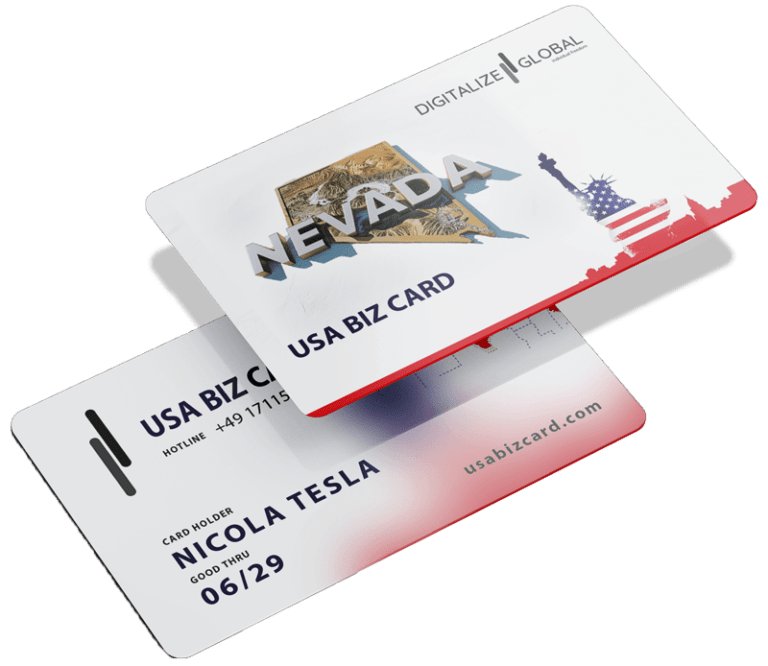The global exchange of banking data
Common Reporting Standard (CRS), also known as automatic exchange of information (AEOI) on financial accounts, is an international system for the exchange of information on financial accounts between tax authorities in different countries. This process was initiated to combat tax evasion and increase transparency in the financial sector.
Cooperative CRS countries 2024
About 111 countries and jurisdictions have signed up to the AEOI, including most of the OECD countriesEU member states and many other nations. Some important Financial centers such as Switzerland, Luxembourg and the Cayman Islands are also involved.
Participating countries 2024 final list
Download: PDF, 617KB, File is not barrier-free
Non-participating countries / countries without CRS
United States
- The USA has its own tax laws and regulations, including FATCA (Foreign Account Tax Compliance Act), which is similar to the AIA in some respects.
- They have so far refused to join the AEOI due to their national legislation and potential double taxation problems for American citizens.
- Although the USA is not part of the Common Reporting Standard (CRS), there are FATCA (Foreign Account Tax Compliance Act) bilateral agreements for data exchange. These agreements relate exclusively to private accounts and are therefore not relevant for US LLCs and business accounts of foreign citizens. US LLCs are considered separate legal entities and not as foreign account holders, which is why they are not affected by these regulations.
Russia
-
Russia has its own tax laws and has so far decided against participating in the AEOI.
-
Russia has its own tax information exchange agreements with a number of countries, but is not integrated into the global AEOI.
Complete list of non-CRS countries 2024, by region
Status: June 13, 2024
Africa
- Ethiopia
- Benin
- Burkina Faso
- Burundi
- Democratic Republic of the Congo
- Djibouti
- Eritrea
- Gabon
- Gambia
- Guinea
- Guinea-Bissau
- Cameroon
- Comoros
- Congo
- Liberia
- Libya
- Madagascar
- Malawi
- Mali
- Mauritania
- Mozambique
- Namibia
- Niger
- Rwanda
- São Tomé and Príncipe
- Senegal
- Sierra Leone
- Somalia
- Sudan
- South Sudan
- Tanzania
- Togo
- Chad
- Tunisia
- Uganda
- Central African Republic
- Zimbabwe
Asia
- Afghanistan
- Bhutan
- Iraq
- Iran
- Yemen
- Cambodia
- Kyrgyzstan
- Laos
- Mongolia
- Myanmar (Burma)
- Nepal
- North Korea
- Philippines
- Sri Lanka
- Syria
- Tajikistan
- Turkmenistan
- Uzbekistan
- Vietnam
Europe
- Belarus (White Russia)
- Bosnia and Herzegovina
- Russia (currently not in Swift)
- Ukraine
North and Central America, Caribbean
- El Salvador
- Haiti
- Honduras
- Cuba
- Nicaragua
- United States of America (USA)
South America
- Bolivia
- Paraguay
- Suriname
- Venezuela
Oceania
- Fiji
- Micronesia
- Palau
- Papua New Guinea
- Solomon Islands
- Timor-Leste
- Tonga
- Tuvalu
Data protection
Exchanged data
Under the AEOI, information on financial accounts such as account balances, interest, dividends and proceeds from the sale of financial assets is exchanged annually between the participating countries. The data relates to persons domiciled in a country other than the country in which the account is held.
Role of monetary amounts and zero messages
There is no minimum amount limit for data exchange. Both accounts with high balances and those with a zero balance are reported. Financial institutions are obliged to transmit all reportable accounts to the tax authorities in their country, regardless of the amount.
Procedure of the tax offices
The tax authorities of the participating countries receive the account data from other countries and can compare it with the tax returns of their citizens. In the event of anomalies such as undeclared foreign accounts, they can initiate further investigations and, if necessary, levy back taxes and penalties. The AEOI is intended to enable a more effective fight against tax evasion.
USA: Double standards in tax information exchange?
- The USA has not yet ratified the AEOIas they already have their own tax information exchange system, the Foreign Account Tax Compliance Act (FATCA).
-
FATCA obliges foreign financial institutions to pass on information about accounts of US taxpayers to the IRS (Internal Revenue Service).
-
Although the USA is not part of the Common Reporting Standard (CRS)but due to FATCA (Foreign Account Tax Compliance Act) bilateral agreements on data exchange. These agreements relate exclusively to private Accounts and are therefore not relevant for US LLCs and foreign business accounts of non Citizens. US LLCs are regarded as separate legal entities and not as foreign account holders, which is why they are not affected by these regulations.
-
Critics argue that the US is applying a double standard by demanding information from other countries but not participating in the AEOI itself.
-
Other countries, including EU member states, are urging the US to join the AEOI in order to improve international tax transparency and the fight against tax evasion and money laundering.
-
Despite these controversies, the US government has so far given no indication that it will join the AEOI. It remains to be seen whether this will change in the future, especially in the context of increasing international cooperation to combat tax evasion and money laundering.
This list is based on the information from the provided document from the official website of the German Federal Central Tax Office and the knowledge about worldwide recognized countries. Please note that some countries may be negotiating or planning to join the CRS in the future. This list may contain errors. Have you discovered an error? Please write to us: Contact us
What is reported in the global banking data exchange?
List of reportable account data within the framework of the automatic exchange of bank data (CRS)
- Name, address, country of residence and tax identification number of the account holder
- Date and place of birth
- Account number and name of the bank or financial institution
- Account balance and total credits in the current calendar year
- Investment income (e.g. interest, dividends) and income from certain insurance contracts
- Proceeds from the sale of financial assets
Are accounts with a balance of zero also reported?
As part of the Common Reporting Standard (CRS) information is also generally provided on Accounts with a balance of zero exchanged. However, there are a few special features:
Obligation to report zero accounts
Accounts with a balance of 0 must always be reported, unless they have been closed. This ensures seamless monitoring and prevents potential tax evasion.
Exceptions for certain account types
There are exceptions for certain account types. For example inactive accounts or Accounts with very low balances be exempt from the reporting obligation under certain circumstances.
Relevance of account movements
Even if an account has a Zero balance the Account movements be relevant during the reporting period. In particular, the Total credits reported in the current calendar year.
Purpose of the comprehensive reporting
Reporting zero accounts helps to obtain a complete picture of a taxpayer's financial situation and to uncover possible tax avoidance strategies.
You might also be interested in: Is there still banking secrecy?
Conclusion
The global exchange of banking data, also known as the Automatic Exchange of Information (AEOI), is an important tool for combating tax evasion and increasing transparency in the financial sector. While over 100 countries have joined the AEOI, some major players such as the US remain outside, leading to criticism of a potential double standard. Despite these controversies, international cooperation to combat tax evasion and money laundering remains an important goal for the global community. They can be a Open an anonymous LLC company with a bank accountplease contact us.
Sources:
Participating countries 2024 final list
Official website of the Federal Central Tax Office
PDF, 617KB, File is not barrier-free
Final list of participating countries
Status: June 13 2024













